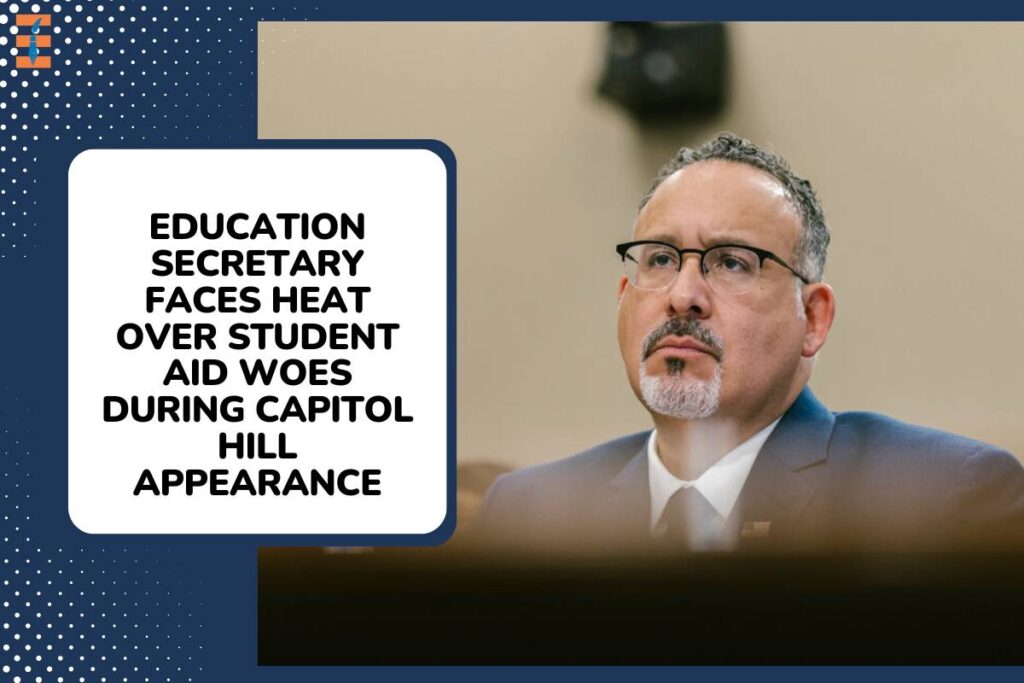Source – The New York Times
Miguel A. Cardona, the U.S. Secretary of Education, found himself under intense scrutiny as he testified before lawmakers on Capitol Hill regarding his agency’s funding requests for the upcoming year. However, instead of focusing solely on budget matters, the hearing took a sharp turn as both Republican and Democratic members raised concerns about the tumultuous college admissions process caused by issues with the Free Application for Federal Student Aid (FAFSA) form.
Republicans, in particular, grilled Secretary Cardona about the mishandling of the new FAFSA form rollout, which has thrown this year’s college admissions process into disarray. Questions centered around whether resources had been diverted away from critical projects to prioritize the administration’s efforts to address student loan debt cancellation.
Secretary Cardona, addressing the House Appropriations Committee, defended his agency’s actions, stating that resolving the FAFSA form issues was a top priority. He assured lawmakers that despite challenges, the Department of Education was diligently working on rectifying the problems around the clock.
FAFSA Glitches Disrupt College Aid
Simultaneously, the House Subcommittee on Higher Education and Workforce Development held a separate hearing where bipartisan lawmakers expressed deep concern over the impact of FAFSA form glitches on prospective college students. Justin Draeger of the National Association of Student Financial Aid Administrators highlighted the broader implications, describing the situation as a “crisis of credibility” for the Department of Education.
Draeger further elaborated on additional issues affecting the accuracy of financial records sent to schools, rendering a significant portion of data unusable for aid calculations. These technical glitches have led to delays in colleges and universities providing crucial financial information to students, affecting enrollment decisions and financial planning.
Rachelle Feldman from the University of North Carolina, Chapel Hill, testified that her institution had yet to send official aid offers to accepted students, a process typically completed alongside acceptance letters by March’s end. Delays in aid offers could compel students to enroll elsewhere before receiving critical financial aid information.
FAFSA Challenges and Calls for Equity
Despite ongoing challenges, the Education Department has maintained regular updates on progress through its “fast news” page, aiming to reprocess faulty records by May 1. Department officials claim major bugs in the FAFSA form have been addressed, and application processing times have improved, with most applications now processed within one to three days.
Secretary Cardona emphasized that while this year’s FAFSA issues are regrettable, the simplified new form will benefit future applicants. Democrats echoed concerns about the potential impact on low-income and first-generation students, highlighting the importance of streamlining aid processes to ensure equitable access to higher education.
The hearing underscored the urgency of addressing FAFSA-related challenges to maintain trust in federal student aid programs and alleviate hardships for students navigating the complex college admissions landscape. As Secretary Cardona navigates these pressing issues, the spotlight remains on ensuring a fair and accessible higher education system for all.










